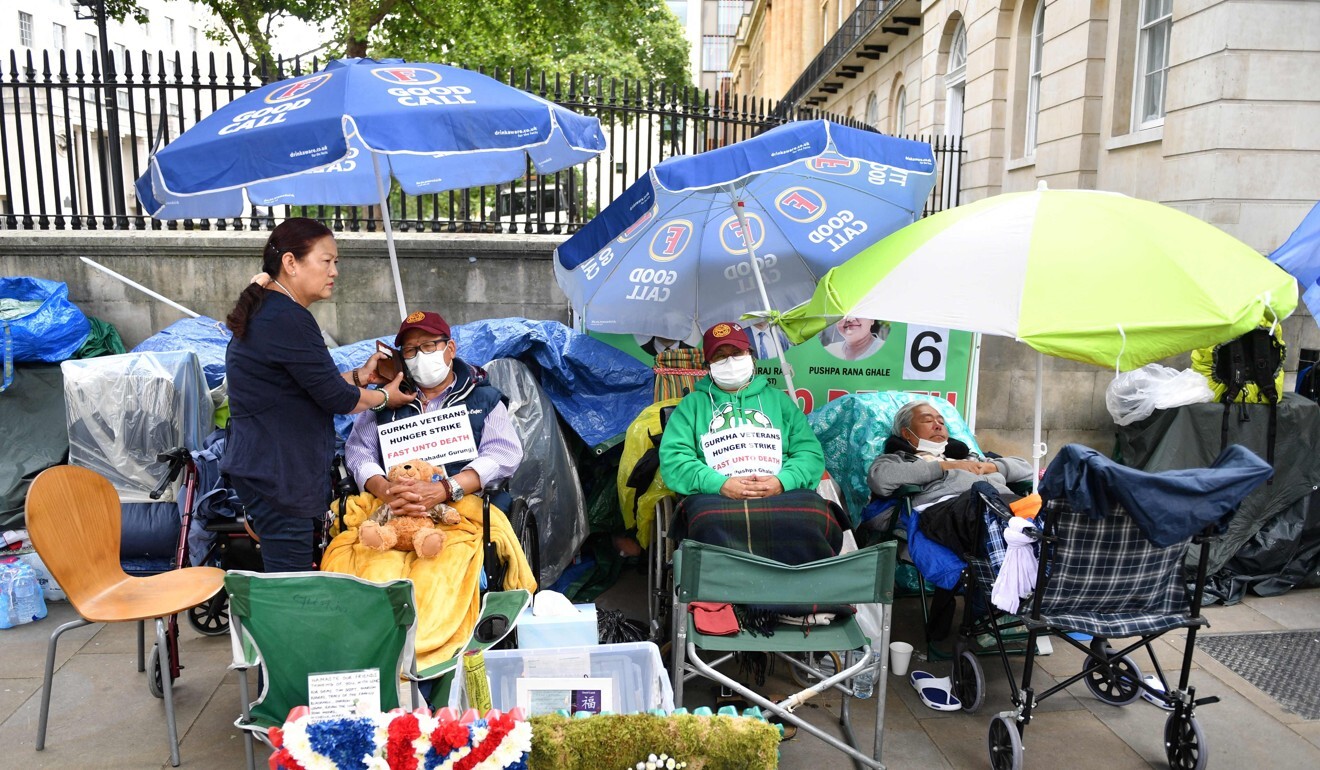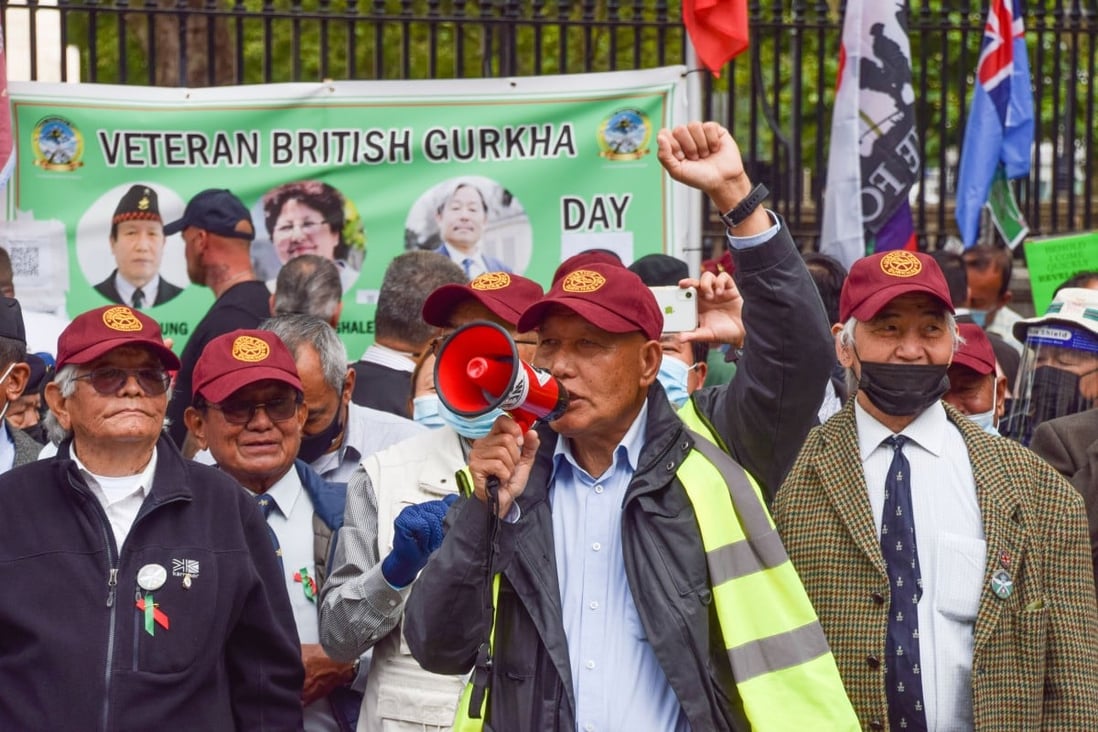After Britain’s Ministry of Defence failed to address their long-term grievances, three British Gurkhas – Gyanraj Rai, Dhan Gurung and Gurkha widow Pushpa Rana Ghale – have been camped outside 10 Downing Street since August 7,
even if it costs them their lives.
Police have sought to evict them but their campaign to ensure equal military pensions for former Gurkha soldiers, originally from Nepal, has begun to attract support from the British public.
Gurkhas have been
for the past 30 years. Despite being renowned for their bravery and impeccable soldiery, the Gurkhas have been mistreated and taken for granted by both British and Nepalese governments.
Despite not being a member country of the Allied forces, Nepal sent more 200,000 Gurkhas to World War I, fighting throughout Europe, the Middle East and Africa. One in 10 Gurkhas did not return. Similarly, in World War II, more than 250,000 Gurkhas went to fight for the British. More than 33,000 of them died.
Since 1815,
in every war involving Britain, yet they are still fighting for equal rights.
The main problem arises from the treaty signed by Britain, India and Nepal in 1947, which remains the basis for Gurkhas enlisting in the British Army. After India gained independence, four Gurkha regiments followed the British and moved to Malaysia and Singapore while six Gurkha regiments joined the newly formed Indian Army.

Instead of integrating the Gurkhas into the British Army, a separate system was created to manage Gurkhas’ pay and pensions. This system remained subject to the Indian Pay Code even years after the Gurkhas left India. As a result, the Gurkhas never received the same pay or pension as their peers in the British Army. The main motive was to pay the Gurkhas as little as possible, and the British have succeeded until now.















